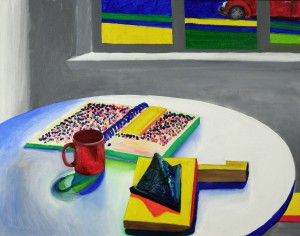On the Essential Meaninglessness of the Word “Metaphysical”
 Come on, really–what DOES it mean?
Come on, really–what DOES it mean?
Sending query letters to literary agents was one of my more useless wastes of time and energy, but one submission–and it might have been the last one to an agent, a couple years ago–brought me up short and made me clarify myself.
The agent had a detailed online form and it was almost like a job interview filling it out. I couldn’t rely on my glib query letter after a while–I was being asked things about my purpose and qualifications, about marketing, possible competing titles, and my proposed audience, and it was such a struggle to keep up that, after finishing as best I could, I finally thanked the agent in the comments section for having such a challenging web form.
But the most important insight to come out of looking at that form was that I finally realized that the word “metaphysical,” which I’d been using to describe my work, is nonsensical. I really have no idea what I mean by “metaphysical,” and I’m not sure anyone else does, either. It may mean “spiritual,” pertaining to spirit or soul matters, but it can mean so many different things–most of them having to do with “weird”–that I saw how idiotic it was to rely on it as an introduction to my work.
So I misused “metaphysical” both in writing query letters and in trying to state what my visual art is about. “Psychological” sounds truer. I’ve always loved the idea of “psychological novels.” Even when I do get into “spiritual territory,” I’m always coming at it from a human psyche’s side.
When I was a student at Rice I came up with a concept that has always stuck with me, finally fully returning with some force within the last couple years. It started as the title of a painting I’d just completed.
“There is a super colossal mess jungle going on. It’s my business to get involved with it, any way I can.”
I was admitting there that about all I could define of the outer universe was that it was a whirlwind of fascinating light and dark energy, some of it ordered, much of it in chaos. But the statement gave me a purpose. First, I could not shrink back into my introverted soul and play head games; I actually owed it to myself to mix myself with the scary outer. Secondly, a method was proposed, i.e., “any way I can,” which would include whatever I could invent, whatever resources I could find: fiction, poetry, the journal, essays, drawings, paintings, sculptures–as long as there was real involvement with whatever was really going on and not just clever designs or tiny, meandering, self-absorbed stories. It wasn’t a quest to create some immense philosophical overview or really understand the chaotic forces, but simply to interact with them in whatever way was appropriate for this lifetime’s personality.
For some time I’ve shunned the word “literary,” which to my mind has been polluted with a sense of Upper Caste, Award Winning, and Certified by the Literati–none of which qualifications apparently exempt some “literary” works from being godawful boring, fake, and/or inconsequential. Sometimes “literary” is called “general” or “mainstream” fiction, apparently to tone down the haughtiness. But an honest meaning of “literary” is probably what I meant all along by “metaphysical.” I may make use of science fiction, fantasy, or absurdist elements, but I’m not necessarily working in those genres. Even if someone picks up my book and says it is those things.
I do think there’s a trend–and really, it can only be healthy–for writers to want to get established in a certain genre like science fiction, mystery, or young adult, because the demand is high for such fiction. Editors and readers more or less know what they’re getting before they start reading. But I’ve read many recent works in these genres that have been overwhelming in their investigations of the human psyche. The authors have chosen to bypass the fabrication of hoary, highfalutin, Pulitzer-chasin’ works. Instead they courageously explore, and contribute to, the Super Colossal Mess Jungle. And that strikes me as a higher and truer “literary” accomplishment.
copyright 2011 by Michael D. Smith

This post was republished in a condensed version on the Book Daily Author Resources page on July 31, 2013.